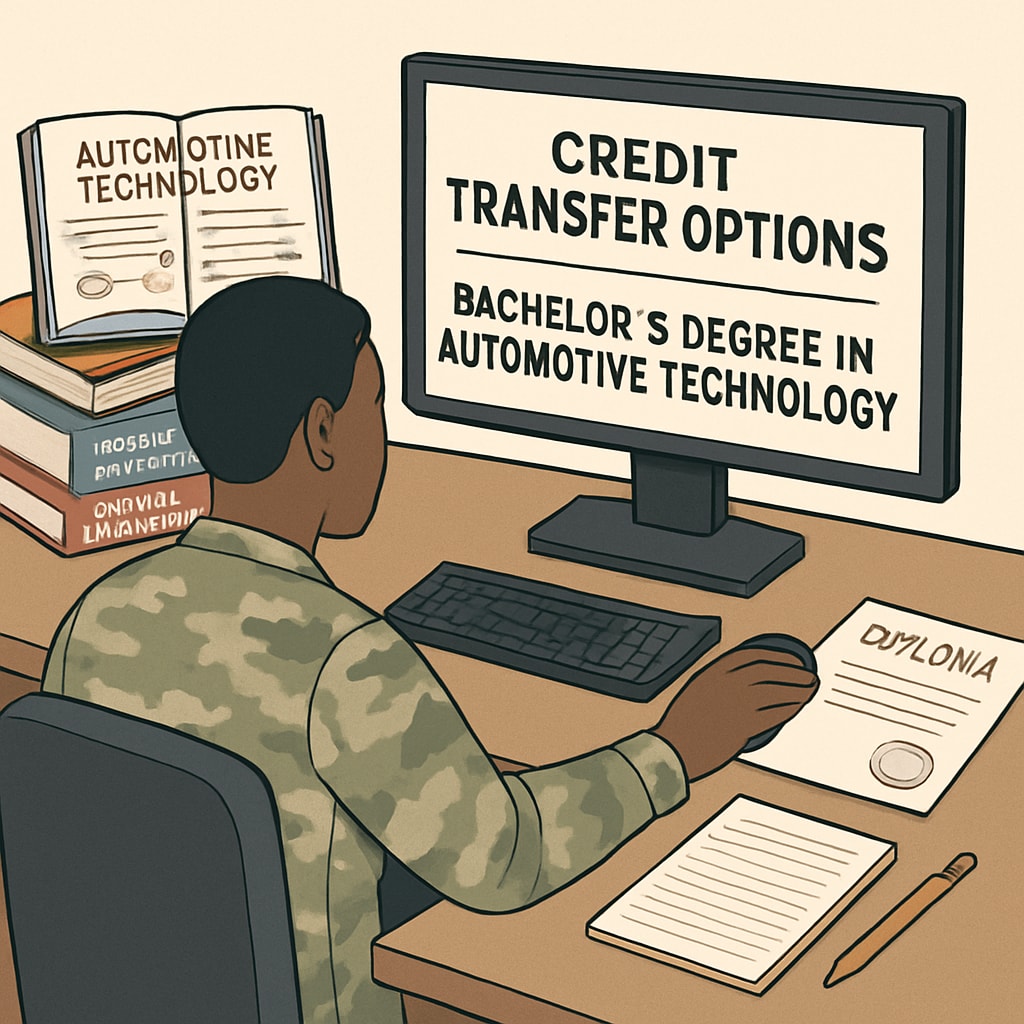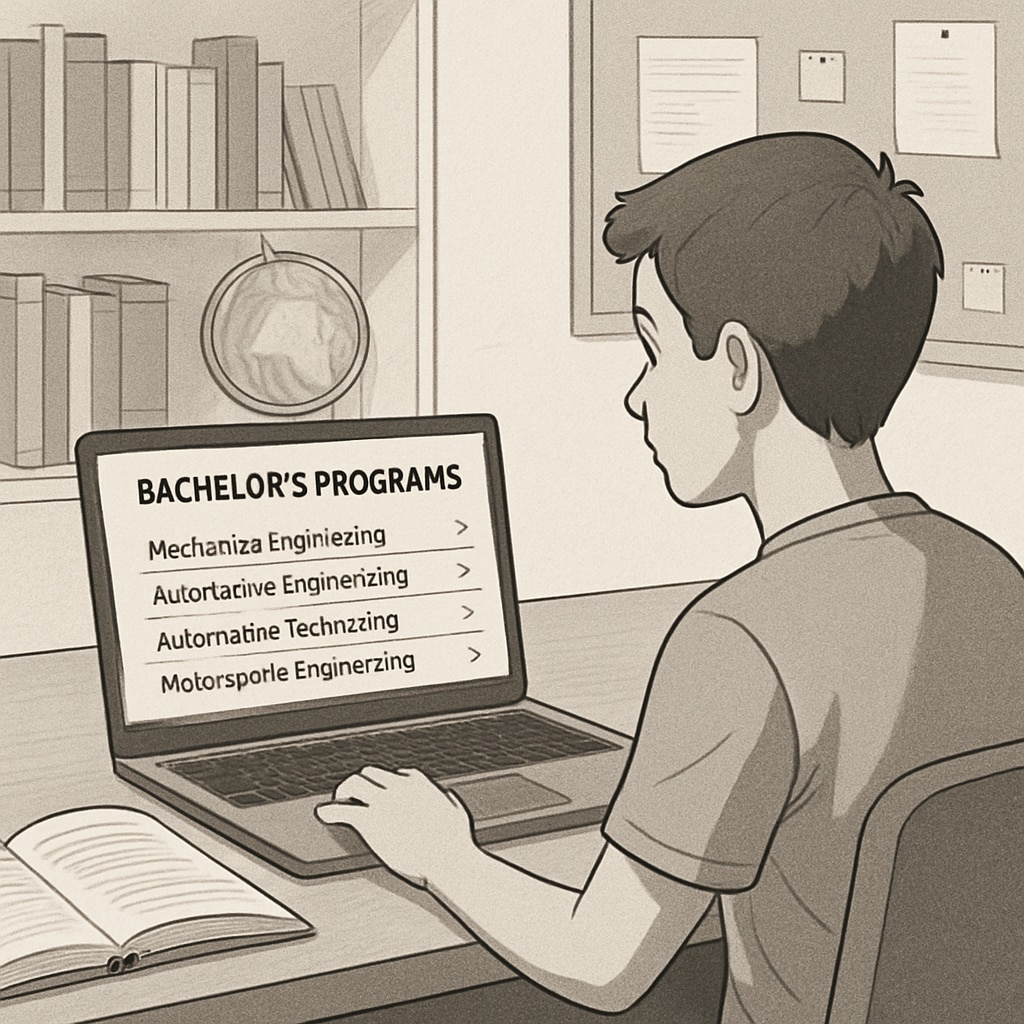Transitioning from an associate degree in automotive technology to a bachelor’s degree can be a rewarding step for military personnel. This path not only expands career opportunities but also provides a solid foundation in advanced technical and managerial skills. In this guide, we will explore how to transfer credits effectively, choose compatible bachelor’s programs, and utilize military-specific education resources to achieve your goals.
Understanding Credit Transfer for Associate Degrees
One of the first considerations when moving from an associate degree in automotive technology to a bachelor’s degree is credit transfer. Many universities have articulation agreements with community colleges, allowing students to transfer credits seamlessly. If your associate program includes courses accredited by the National Automotive Technicians Education Foundation (NATEF), those credits are often more easily recognized by bachelor’s programs.
- Contact Admissions Offices: Reach out to potential universities to understand their credit transfer policies and determine how many of your existing credits will apply.
- Military Transcripts: Utilize your Joint Services Transcript (JST) to showcase training and coursework completed during military service. These may count toward general education or elective credits.
- Prior Learning Assessments (PLAs): Some schools offer PLAs where military experience and certifications can be evaluated for academic credit.
By ensuring your credits transfer effectively, you can save both time and money on your educational journey.

Choosing Compatible Bachelor’s Programs
Another critical step is selecting a bachelor’s program that aligns with your associate degree and career goals. While a degree in automotive engineering might seem like the most direct path, there are several other options to consider:
- Automotive Management: Focuses on the business side of the automotive industry, including dealership operations and supply chain management.
- Mechanical Engineering: Provides a broader understanding of engineering principles, suitable for those interested in design and innovation.
- Business Administration: Combines technical knowledge with leadership skills, ideal for roles in management or entrepreneurship.
- Industrial Technology: Covers advanced manufacturing and production processes, which are applicable to automotive and related industries.
When choosing a program, consider not only your interests but also the job market and potential career advancements. Many universities offer online and hybrid courses, making it easier for active-duty military members to balance education and service commitments.

Leveraging Military Education Resources
Military personnel have access to unique educational benefits that can significantly reduce the cost of earning a bachelor’s degree. Here are some resources to consider:
- GI Bill: Covers tuition, fees, and even housing allowances for eligible service members and veterans pursuing higher education.
- Tuition Assistance (TA): Offers financial aid for active-duty personnel to cover a portion of tuition costs.
- Scholarships for Veterans: Numerous organizations offer scholarships specifically for military members transitioning to civilian careers.
- Yellow Ribbon Program: Helps cover education costs that exceed the GI Bill limits at participating schools.
In addition to financial aid, many institutions have dedicated military support services, including academic advising, mentorship programs, and career counseling tailored to veterans and active-duty members.
Planning Your Next Steps
To successfully transition from an associate degree in automotive technology to a bachelor’s program, it’s essential to take a strategic approach. Here’s a step-by-step summary:
- Evaluate your current credits and military training for transferability.
- Research bachelor’s programs that align with your interests and career goals.
- Utilize military education benefits, such as the GI Bill and Tuition Assistance, to fund your studies.
- Reach out to military-friendly universities for additional support and resources.
- Create a flexible study plan that accommodates your military commitments.
By taking these steps, you can make the most of your associate degree and position yourself for a successful career in the automotive or related industries.
Readability guidance: This article uses short paragraphs, lists, and actionable advice to ensure clarity and accessibility. Transition words like “however,” “in addition,” and “therefore” are included to enhance the flow. Long sentences and passive constructions have been minimized for better readability.


